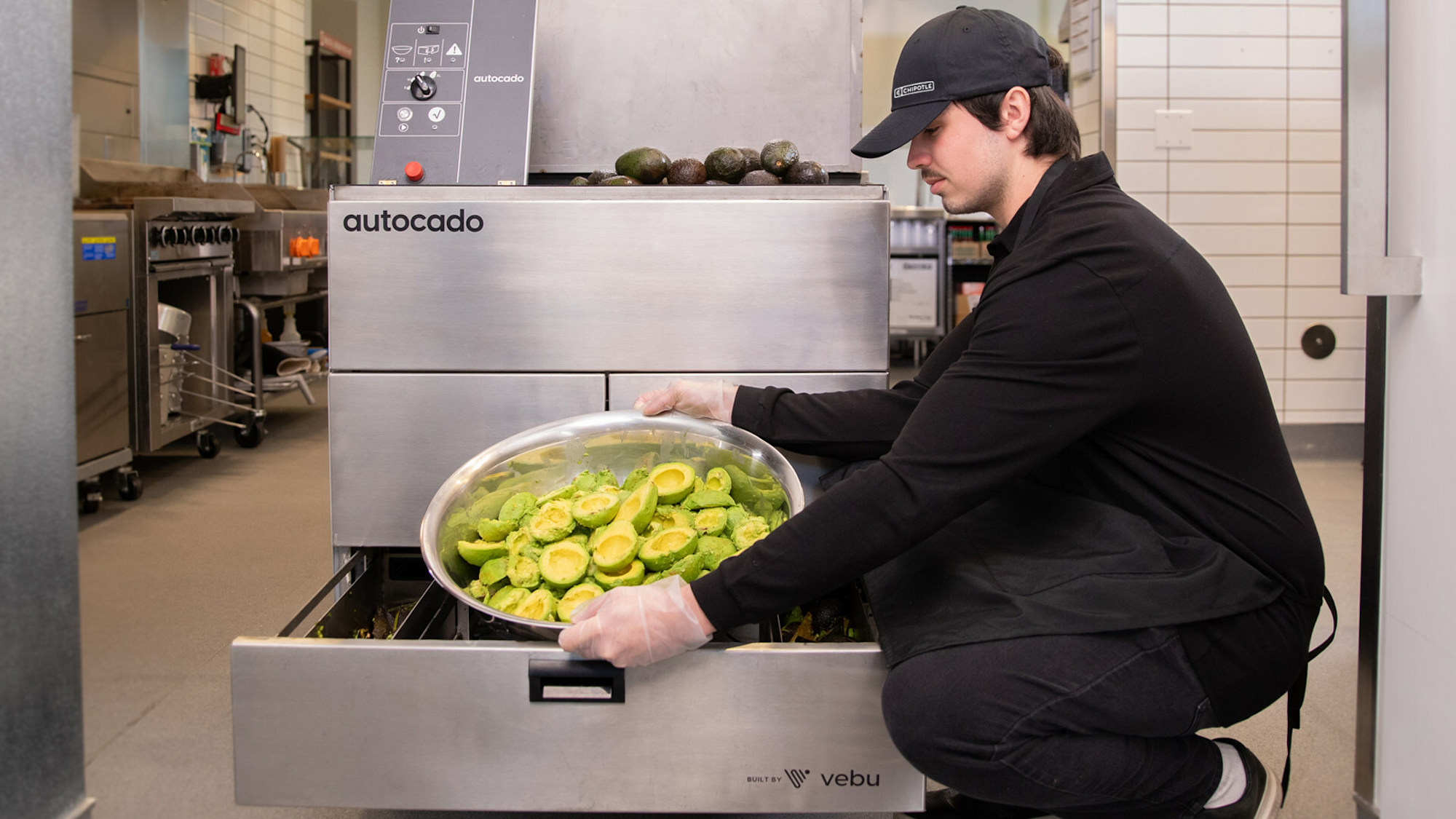

According to Chipotle, it takes approximately 50 minutes for human employees to cut, core, and scoop out enough avocados to make a fresh batch of guacamole. It’s such a labor-intensive process that Chipotle reports some locations apparently have workers wholly “dedicated” to the condiment composition. The time it takes to complete the lengthy task could soon be cut in half, however, thanks to a new robotic coworker.
On Wednesday, Chipotle announced its partnership with the food automation company Vebu to roll out the Autocado—an aptly named “avocado processing cobotic prototype” designed specifically to prepare the fruit for human hands to then mash into tasty guac.
[Related: You’re throwing away the healthiest part of the avocado.]
Per the company’s announcement, Chipotle locales throughout the US, Canada, and Europe are estimated to run through 4.5 million cases of avocados in 2023—reportedly over 100 million pounds of fruit. The Autocado is designed specifically to cut down on labor time, as well as also optimize the amount of harvested avocado. Doing so not only would save costs for the company, but cut down on food waste.

To use the Autocado, employees first dump up to 25-pounds of avocados into a loading area. Artificial intelligence and machine learning then vertically orient each individual fruit before moving the ingredients along to a processing station to be halved, cored, and peeled. Employees can then retrieve the ready avocado from a basin, then combine them with the additional guacamole ingredients and mash away.
“Our purpose as a robotic company is to leverage automation technology to give workers more flexibility in their day-to-day work,” said Vebu CEO Buck Jordan in yesterday’s announcement.
[Related: Workplace automation could affect income inequality even more than we thought.]
But as Engadget and other automation critics have warned, such robotic rollouts often can result in sacrificing human jobs for businesses’ bottom lines. In one study last year, researchers found that job automation may actually extract an even heavier toll on workers’ livelihoods, job security, and quality of life than previously believed. Chipotle’s Autocado machine may not contribute to any layoffs just yet, but it isn’t the only example of the company’s embrace of similar technology: a tortilla chip making robot rolled out last year as well.
Automation isn’t only limited to burrito bowls, of course. Wendy’s recently announcing plans to test an underground pneumatic tube system to deliver food to parking spots, while Panera is also experimenting with AI-assisted coffeemakers. Automation isn’t necessarily a problem if human employees are reassigned or retrained in other areas of service, but it remains to be seen which companies will move in that direction.
Although only one machine is currently being tested at the Chipotle Cultivate Center in Irvine, California, the company hopes Autocado could soon become a staple of many franchise locations.
Correction 7/13/23: A previous version of this article referred to Chipotle’s tortilla chip making robot as a tortilla making robot.
